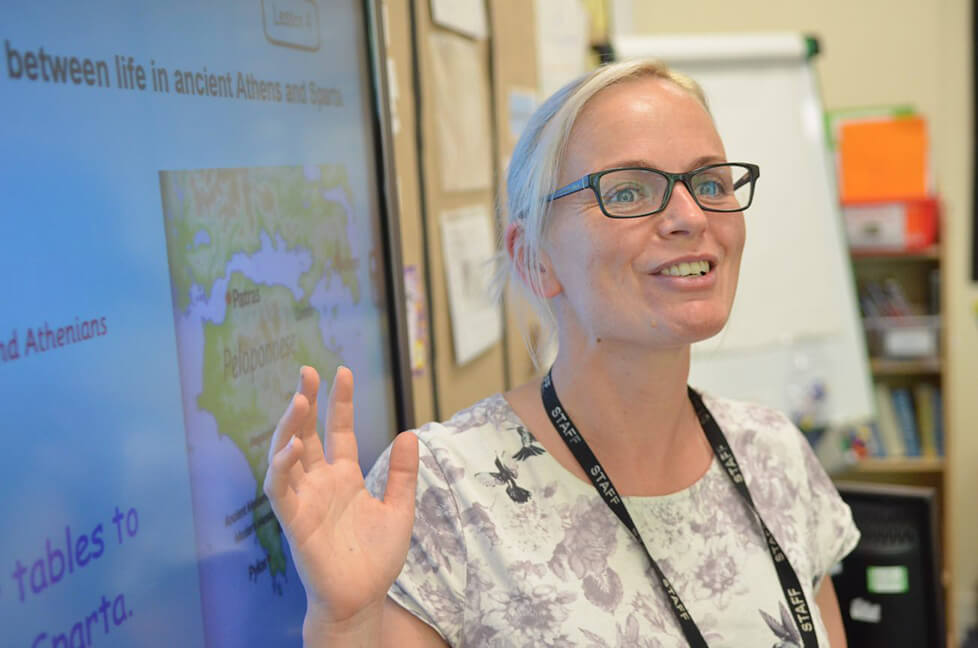England ranks fourth in the world for reading
England has risen to fourth place in the Progress in International Reading Literacy Study (PIRLS) 2021 league tables, surpassed only by Russia, Hong Kong and Singapore. Conducted every five years, PIRLS is recognised at the global standard for assessing trends in reading achievement at Year 5 level. Data was collected from 57 countries, measuring the outcomes of 400,000 students.
Due to the pandemic, 14 countries delayed reading assessments for the Year 5 cohort until the beginning of Year 6. Out of the remaining 43 countries, England ranked fourth with a score of 558, well above the international average of 520. Schools Minister, Nick Gibb, attributes the nation’s success to the introduction of the Phonics Screening Check and the English Hubs Programme, which have ‘given students across the country a solid foundation in reading, and as today’s results show, one which is internationally recognised.’
England’s score fell by just one point since the last time tests took place in 2016. That year, England came joint eighth with Norway and Chinese Taipei. However, many countries saw significant drops in attainment due to Covid and the subsequent disruptions to learning. As a result, England outperformed countries such as Finland and Poland, which had previously achieved higher scores. The Prime Minister comments that ‘pupils and teachers across the country should be incredibly proud of this achievement.’
Over a quarter of schools have no plans to extend the school week
The Schools White Paper, published last year, set out the expectation that mainstream schools should deliver the minimum of a 32.5 hour week by September 2023. The majority of schools already offer 32.5 hour weeks, the equivalent of 8:45 am to 3:15 pm, Monday to Friday. But for those not meeting the minimum hours, Ofsted will ‘look at how they have come to that decision and what impact it has on the quality of education provided.’
The Department for Education (DfE) said that it would publish guidance in summer 2022, but so far no further documentation has been released. Without any clarity on how to implement the government’s pledge, research shows that more than a quarter of schools are not making any changes to the length of the school week. Of those that are making changes, only 6% of schools are extending lesson times. Others have chosen to extend breaks or tutoring sessions. About a third plan to open the school doors earlier, by 10 minutes or less, whilst 29% are closing later – again, by no more than 10 minutes.
Unions have criticised the policy and urged the government to focus on more important priorities. Ian Hartwright, head of policy at NAHT, the school leaders’ union, says ‘there’s virtually no evidence to suggest that adding a small amount of time to the school day will benefit pupils, but plenty to indicate it will create significant financial and logistical challenges for many schools.’ The DfE has said that it will release an update in due course, but reasserts that schools should work towards meeting the minimum expectation as soon as possible.
New measures to tackle post-pandemic absence
Latest data shows that almost a quarter of pupils were persistently absent in the autumn term 2022-23. This has been predominantly driven by illness, with 12.4% of pupils persistently absent due to illness alone. But reports show that the rate of persistent absence for unauthorised other reasons (PAUO) is also on the rise. Between 2006-7 and 2018-19, the rate had risen gradually from 1.4 to 2.2%. However, in 2021-22, the figure stood at 3.4%.
In response, the government has published plans to tackle post-pandemic absence rates with new support. Following the success of the pilot programme led by Northern Education Trust (NET), nine schools and trusts have been chosen to lead new attendance hubs. From June onwards, they will support up to 600 primary, secondary and alternative provision schools to improve their attendance with resources and training. Rob Tarn, CEO of the NET, says that the increase in schools working together means ‘many organisations need no longer feel alone and will have the ability to share their best practice whilst receiving ideas from others.’
Furthermore, the attendance mentoring programme, currently trialled in Middlesbrough, will be extended to Knowsley, Doncaster, Stoke-on-Trent, and Salford. Delivered by children’s charity Barnardo’s, the scheme will work with 1,665 persistently and severely absent children to overcome barriers to attendance.
However, Julie McCulloch, director of policy at the Association of School and College Leaders (ASCL), says the government’s response ‘barely scratches the surface of this problem.’ She urges the government to address the root cause of absence, which many believe is driven by the rise in mental health problems. This echoes sentiments expressed at the education committee earlier this week, where experts warned that pupils with mental health issues may face stigma, discrimination, and punitive measures in school, which can negatively affect their wellbeing and result in poor attendance.
One Education is proud to support world-class teaching and leadership in schools, acting as advocates for the highest professional standards.
Find out how we can help to enhance your reading offer, or work with you to support pupil wellbeing and improve school attendance.
Please get in touch to learn more about our services.















